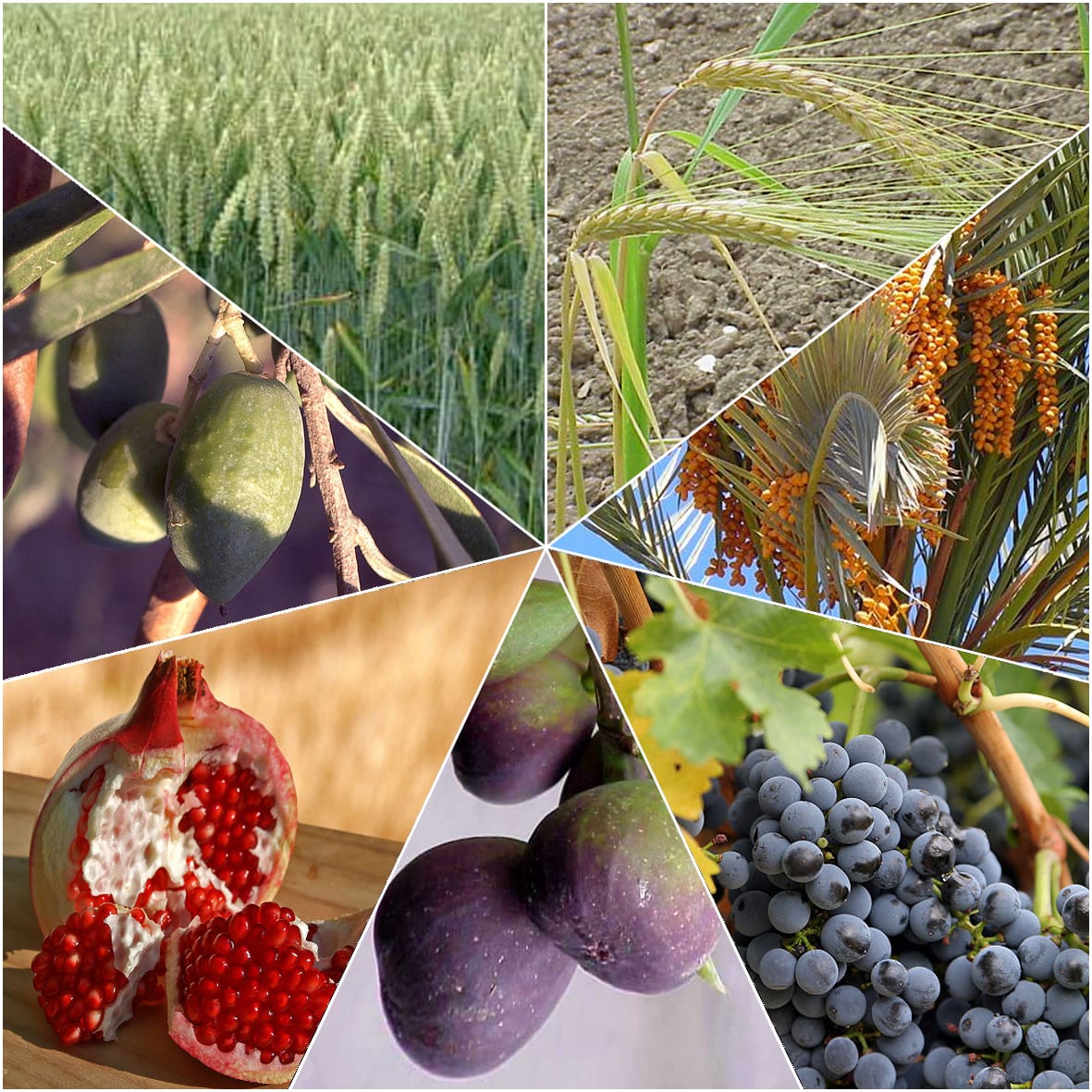While we are required to make a blessing on any food we eat, there are special rules for the “seven species”, the seven kinds of produce mentioned in the Torah as the praise of the Land of Israel: wheat, barley, grapes, figs, pomegranate, olives, and dates (D’varim 8:8). These kinds of produce have priority over other kinds in making a first blessing (SA OC 211), and they have a special long after-blessing (“one like three” – SA OC 208).
Rav Natan of Breslav explains how this rule serves to connect all of our blessings to the praise of the Land of Israel. The unique quality of the Land of Israel, writes Rav Natan, is that there we have a heightened perception of God’s sovereignty. “The principle characteristic of the Land of Israel is that there it becomes revealed that Hashem created the entire world, and grants it to whom He wishes”. Rav Natan mentions Rashi’s commentary at the very beginning of the Torah, where Rashi explains that the importance of the Creation narrative is to fulfill the verse, “The might of His acts He retold to His people, to give them the inheritance of nations” – He told us of the Creation in order that we would understand the legitimacy of our claim to the Land of Israel. Since He created the world, He is able to give of it to whom He wishes.
This has an intimate connection with the gemara’s explanation of the source of the obligation to make blessings: one verse states, “The land and its fullness belong to Hashem; the world and all its inhabitants” (T’hilim 24:1). Yet another verse says, “The heavens are the heavens of Hashem, but the land He has given to man” (Tehillim 115:16). The gemara explains that the first verse is before we make a blessing; at first everything belongs to Hashem. The second verse applies after we bless; once we acknowledge His ownership He gives us the right to eat the earth’s produce (Berakhot 35a).
Thus, both the land of Israel and the blessing on food remind us that fundamentally the entire world belongs to God, but both also remind us that He desires to grant of His possession to those who do His will, particularly those who have an elevated appreciation of His presence. Thus, He has divided the earth among the nations, and in particular reserved the land of Israel for the people of Israel; and furthermore He allows us to eat food once we make a blessing.
The connection between these two concepts is strengthened by the fact that even the verses referring to food refer also to the land of Israel. Rashi’s commentary to T’hilim explains that the “land” in the first verse refers to the land of Israel, while the “world” in the same verse refers to the rest of the world. Before the blessing, the world is divided into the land of Israel, where God’s sovereignty is evident, and the rest of the world. But after the blessing only “the land” is mentioned. By making a blessing and acknowledging Hashem’s mastery, we in effect draw the sanctity of the land of Israel to the entire world, and thus we experience in all foods the unique level of Providence which is otherwise evident only in the produce of the land of Israel. – (Likutei Halakhot Blessing on Fruit 2)
Rabbi Asher Meir is the author of the book Meaning in Mitzvot, distributed by Feldheim. The book provides insights into the inner meaning of our daily practices, following the order of the 221 chapters of the Kitzur Shulchan Arukh.
The words of this author reflect his/her own opinions and do not necessarily represent the official position of the Orthodox Union.
